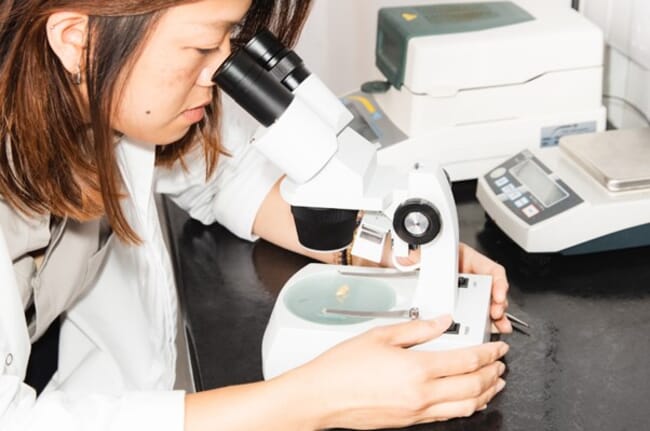
© Entocycle
The insect sector is currently constrained by strict legislation on the use of insect protein in animal feed and a lack of protocols and standards for insect-rearing facilities. Furthermore, current UK and EU legislation prohibits the use of livestock manure and slurry as a feedstock for insects, restricting its potential to reduce the growing problem of agricultural waste and the associated environmental pollution.
Currently, feedstocks allowed to breed and feed insects are primarily of vegetal origin. Examples include vegetables not meeting specific supermarket standards, byproducts from vegetable processing, such as potato or carrot peelings, or spent grains from beer or spirit production. Animal products are not permitted, with the exception of dairy products and eggs.
The project, named InSAFE, is funded by Innovate UK and BBSRC as part of the Novel Low Emission Food Production Systems competition and will evaluate the use of non-permissive feedstocks, including pig slurry, chicken manure and sewage sludge, to raise black soldier fly (BSF).
Protocols, codes of practice and Food Safety and Quality standards will also be developed for a range of production scales, from small lab-scale units to commercial farms.
Insect farming demonstration facility
A new, state-of-the-art insect-rearing demonstrator facility, developed and installed by insect technology startup Entocycle, will house the research and is situated at The National Pig Centre on the University of Leeds’ research farm in Yorkshire.
The 40ft walk-in unit – named ‘Entoexplore’, is the only commercial demonstrator to utilise non-permissive feedstocks in the UK, and it has been specifically designed and built to withstand the industrial requirements of handling these inputs. The unit mirrors commercial rearing environments with an environmental control system and Wi-Fi data monitoring.
Samples will be collected from the unit, in addition to Entocycle's R&D facility in London, for permissive feedstocks, including segregated food waste. The research will analyse the bacterial microbiome, pathogen loads, presence of AMR genes, and heavy metal content of permissive and non-permissive feedstocks before and after insect bioconversion (the natural process of insects eating and upcycling waste matter into higher-value products such as protein and fertiliser), alongside analysis of the BSF larvae and by-products such as frass.
The UN predicts that by 2025, the world will have a 60 million tonne deficit of protein to feed animals and humans. 75 percent of global soy production is used as protein in animal feed, but its production is fuelling both deforestation in critical ecosystems and the climate crisis. Insect farming provides a low-carbon protein alternative to soy and other feed ingredients by using less land area, less water, and fewer fossil fuel-based materials per kg of protein produced.
Will Bisset, commercial officer of Entocycle, said in a press release: “Once UK legislation is updated to permit these inputs, we’ll see the price of insect protein fall and challenge incumbent protein sources such as fishmeal and soymeal, becoming a mainstream protein source across agriculture. The UK has a real opportunity to become a global leader in this space and become much more secure in terms of our food and feed supply – especially amidst the global shocks and supply chain instability of recent years.”
Dr Gesa Reiss, global food and environment institute senior innovation fellow, University of Leeds, added: “Insects are still an emerging opportunity for farmers, and developing codes of practice and industry standards, in particular those on Food Safety, will help to align insect farming with other farming systems in the UK. The InSAFE project will help us accelerate our efforts to address some of the barriers facing the industry, in particular those related to food safety.”




